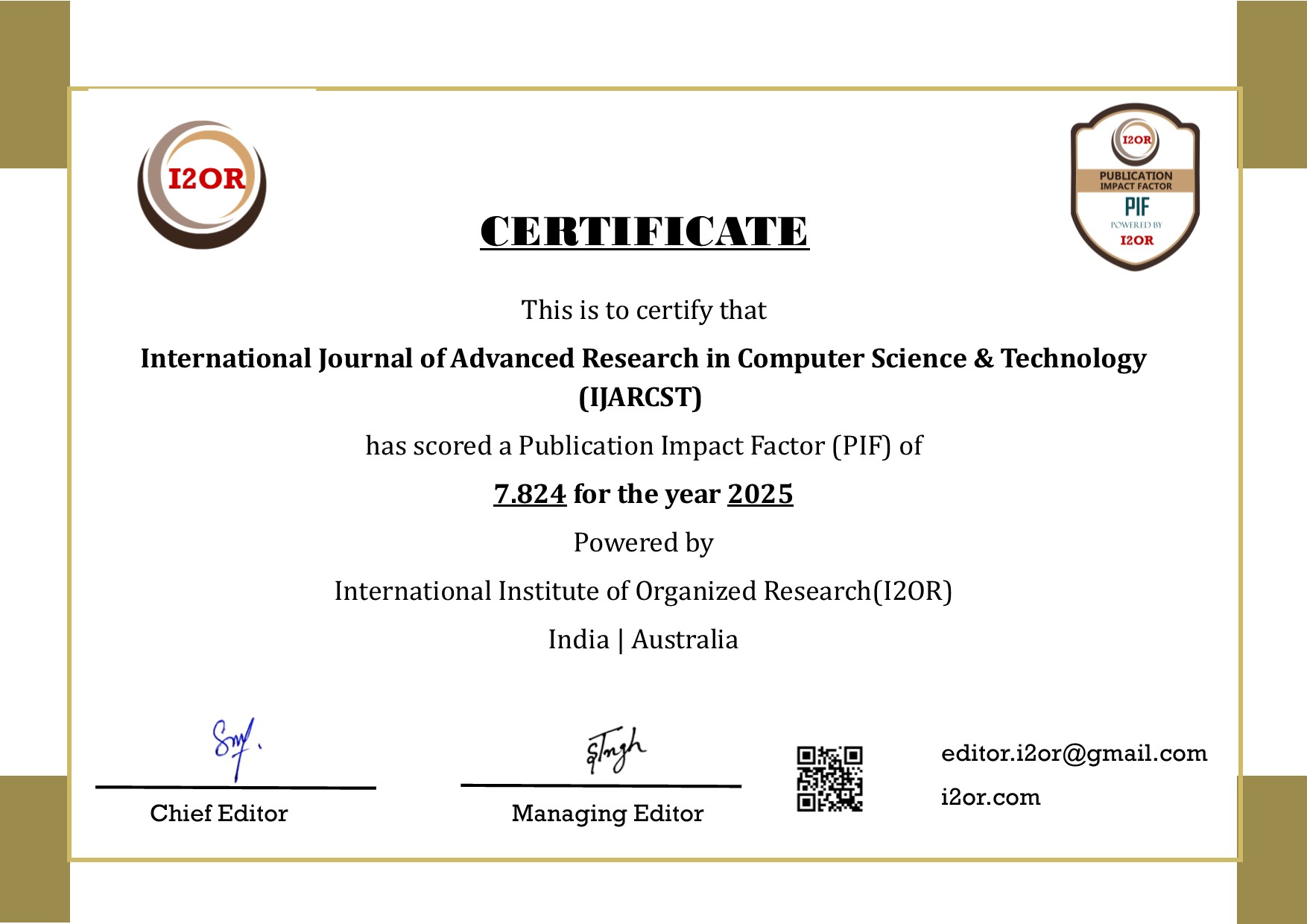Blockchain-Enabled Database Systems for Financial Transactions
DOI:
https://doi.org/10.15662/IJARCST.2024.0704002Keywords:
blockchain-enabled databases, financial transactions, data integrity, auditability, federated learning, biometric authentication, fusion systems, financial securityAbstract
: Blockchain-enabled database systems offer transformative potential for financial transactions by merging unprecedented data integrity with auditability, decentralization, and security. In 2023, burgeoning research has explored integrating traditional database functionalities with blockchain features to address persistent challenges in financial systems. This paper synthesizes prominent 2023 developments, including a foundational survey on blockchain–database fusion systems that characterizes taxonomy and emerging design patterns, highlighting trade-offs between performance and tamper-proof guarantees SpringerLink. Further, practical case studies demonstrate enhanced transactional transparency in health insurance platforms via blockchain-backed secure data ledgers jst.org.in. Blockchain’s role in bolstering adoption of federated learning across financial services—combatting fraud, preserving privacy, and optimizing storage—has been explored via hybrid architectures arXiv. Moreover, innovative authentication systems like FinBTech combine blockchain, smart contracts, biometric modalities (FaceNet512, GMM-based audio) to secure video and voice-based financial transaction verification arXiv. Our methodology involves comparative evaluation of designs, focusing on security, auditing, performance, scalability, and integration complexity, drawing on both qualitative insights and quantitative benchmarks. Results reveal that blockchain–database hybrid architectures significantly enhance tamper resistance, audit trails, and multi-factor authentication, albeit at the cost of compute and deployment complexity. We propose design principles for implementing blockchain-enabled databases in finance: modular integration layers, hybrid consensus models, optimized indexing, and layered privacy controls. Finally, we conclude with future directions, including performance optimization pathways (e.g., using sharding or zero-knowledge roll-ups), standardization frameworks, and case-driven validation in live financial systems.
References
1. A Survey on the Integration of Blockchains and Databases (2023) – taxonomy and design trade-offs SpringerLink
2. Integrating Blockchain with Database Management Systems for Secure Accounting in the Financial and Banking Sectors (2023) – health insurance financial transparency jst.org.in
3. Use of Federated Learning and Blockchain towards Securing Financial Services (2023) – decentralized analytics security arXiv
4. FinBTech: Blockchain-Based Video and Voice Authentication System… (2023) – biometric authentication via blockchain arXiv





